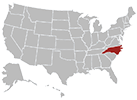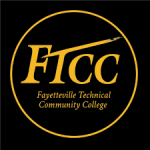
Would you like to play a vital role in the healthcare system?
A career as a sterile processing technician may be a great fit.
Maintaining sterile equipment in a hospital setting helps keep patients safe.
Step into a job in healthcare where you sterilize, distribute, and track medical equipment.
Put your detail-oriented skills to work while providing an essential service to the welfare of others by following the steps below.
Steps to Become a Sterile Processing Technician in North Carolina
Sterile Processing Technicians work in a controlled environment where they adhere to procedures.
As a Sterile Processing Tech, you will work directly under a licensed professional, usually a registered nurse.
If you want to obtain education and certification, the steps recommended to work as a sterile processing technician in North Carolina are as follows:
Step 1
Graduate high school or receive an equivalency, and then complete an accredited training program through a college or university.
Step 2
Pass the certification test, either the CRCST Certified Registered Central Service Technician or the CSPDT Certified Sterile Processing and Distribution Technician.
Step 3
Pass a background check and a drug screening and meet all legal requirements.
Step 4
Maintain your hard-earned certification by paying the annual fees, and studying the required hours of continued education.
Licensing Requirements to Become a Sterile Processing Technician in North Carolina
You won’t need a license to work as a sterile processing technician.
However, the more training and knowledge you gain translates into assets in proving competence and earning promotions.
Follow these steps:
- Ask your employer which credentialing organization they prefer
- Choose an accredited program of course study in North Carolina.
- Complete required coursework
- Prepare for the CRCST certification by acquiring 400 hours of hands-on experience within five years before taking the test or within six months of passing the certification exam. Or get certified through the CBSPD Certification Board for Sterile Processing and Distribution after completing an accredited program.
- Pass the certification exam.
- Apply for certification
- Maintain certification by completing 12 continuing education credits each year or by reading and passing an HSPA quiz or video session and survey.
Sterile Processing Technician Programs in North Carolina

Fayetteville Technical Community College
2201 Hull Road Fayetteville, NC 28303
(910) 678-8400
Earn your Central Sterile Processing Certificate from Fayetteville Technical Community College in one, 17-credit hour semester.
The program prepares you to sit for the SPD Technician Certification Exam from the CBSPD Certification Board for Sterile Processing and Distribution.
Attend classes at the Fayetteville, Fort Bragg, or Spring Lake campuses.
Expect to pay tuition costs of$76 per credit hour for in-state residents and $268 per out-of-state credit hour.
The community college receives accreditation from the Southern Association of Colleges and Schools, Commission on Colleges.

Wake Technical College
9101 Fayetteville Road Raleigh, NC 27603
(919) 866-5000
Learn the principles of sterilization, disinfection, quality assurance, inventory control, and instrument distribution in a hybrid environment of on-campus and online classes.
Complete the course in three months or less.
Expect to pay $76 per class in tuition for residents of North Carolina, or $268 per out-of-state credit hour.
Additionally, plan on extra funds for class materials including books or other fees.
Wake Technical Community College in Raleigh offers a hybrid Central Sterile Processing Technician study course.
Learn the main responsibilities of a sterile processing tech including practical application.
![]()
Durham Technical Community College
1637 East Lawson Street Durham, NC 27703
(919) 536-7200
Study Sterile Processing Technician courses at Durham Technical Community College in Durham, North Carolina.
Complete this short-term, hybrid course in Central Sterile Processing Technicians to prepare to serve surgeons and support inventory in operating rooms.
The course requires a daytime clinical and prepares students to take the certification for health care sterile processing and distribution technicians exam.
Expect to pay approximately $387.25 to complete the course in 12 months or less.
Purchase hunter-green scrubs and puncture-resistant, white or black closed-toe shoes for wear during hands-on labs.
Receive training in applying standards of disinfection and sterilization in a work environment.
Learn how to manage inventory and distribute supplies.
Prepare to take the Central Sterile Processing Technician examinations.
Students will complete 30 hours of clinical application and a four-hour Basic Life Support BLS or CPR.
To enroll, show proof of a high school diploma or equivalency, proof of immunizations, health insurance, and undergo a criminal background check and drug screening.

Davidson-Davie Community College
297 DCCC Road Thomasville, NC 27360
(336) 249-8186
https://www.davidsondavie.edu/
Prepare to work in the field of Sterile Processing and Central Service Supply.
Earn a certificate in Central Sterile Processing at Davidson-Davie Community College in Thomasville.
Learn through this 12-week course which includes online and in-person labs in Mocksville, and ready yourself for immediate workforce entry.
Tuition costs $286.50, but you also expect to pay more for supplies and books.

North Carolina Central University
1801 Fayetteville Street Durham, NC 27707
(855) 520-6806
https://careertraining.nccu.edu/
The university offers a 12-month, 190-course hour program with a voucher for the CRCST Certified Registered Central Service Technician certification.
Pay a discounted tuition of $2,795 for this 100 percent online course.
The cost of the exam is included in the tuition price.
Perform a vital role in preventing infection through sterilization, storing, and distributing medical supplies.
Learn to work as an SPT Sterile Processing Technician.
The course also prepares you for the CRCST Certified Registered Central Service Technician certification offered through the HSPA Healthcare Sterile Processing Association.
The course also includes a prepaid voucher for access to sit for the exam and an opportunity to participate in a clinical experience.
5 Sterile Processing Technician Schools in North Carolina
| School Name | Address |
|---|---|
| Fayetteville Technical Community College | 2201 Hull Road Fayetteville, NC 28303 |
| Wake Technical College | 9101 Fayetteville Road Raleigh, NC 27603 |
| Durham Technical Community College | 1637 East Lawson Street Durham, NC 27703 |
| Davidson-Davie Community College | 297 DCCC Road Thomasville, NC 27360 |
| North Carolina Central University | 1801 Fayetteville Street Durham, NC 27707 |
Salary
Expect an annual median pay of $39,640 when you work as a Sterile Processing Technician in North Carolina.
Salary.com reports some technicians earn as much as $49,268 or as little as $31,630.
Those who receive certification, education, and experience typically earn more than those who go from high school straight into on-the-job training.
Annual Salary Range:Average Salary of Sterile Processing Technicians in North Carolina
| City Name | Salary |
|---|---|
| Asheboro | $37,103 |
| Bridgeton | $36,033 |
| Asheville | $36,430 |
| Burlington | $37,103 |
| Burnsville | $35,875 |
| Norman | $36,390 |
| Morganton | $38,134 |
| Salisbury | $37,302 |
| Pinebluff | $35,756 |
| Pendleton | $37,539 |
Regional Salary
| Region | Employed | Avg. Annual Salary | Avg. Hourly Pay | Top 10% Annual Salary | Bottom 10% Annual Salary |
|---|---|---|---|---|---|
| Asheville, NC | 120 | $44,360 | $21.33 | $58,460 | $35,360 |
| Charlotte-Concord-Gastonia, NC-SC | 580 | $44,920 | $21.60 | $56,870 | $36,460 |
| Fayetteville, NC | 50 | $38,750 | $18.63 | $45,690 | $31,410 |
| Greensboro-High Point, NC | 240 | $41,420 | $19.92 | $52,350 | $30,930 |
| Greenville, NC | 140 | $41,000 | $19.71 | $45,600 | $37,170 |
| Hickory-Lenoir-Morganton, NC | 60 | $42,570 | $20.47 | $56,290 | $33,950 |
| Raleigh-Cary, NC | 330 | $45,570 | $21.91 | $58,800 | $33,670 |
| Rocky Mount, NC | 30 | $40,600 | $19.52 | $52,710 | $24,720 |
| Wilmington, NC | 100 | $43,620 | $20.97 | $50,580 | $35,360 |
| Winston-Salem, NC | 360 | $48,190 | $23.17 | $64,220 | $37,990 |
* Employment conditions in your area may vary.
Frequently Asked Questions
What are the annual fees for holding my Sterile Processing Technician license?
Renew your Certified Registered Central Service Technician certification with a $50 annual fee.
Membership with the certification costs $60 annually.
How long does it take to become a sterile processing technician in North Carolina?
Depending on whether you go directly to on-the-job training or if you seek certification, the time it takes varies.
Expect to spend four months to one year to obtain education and certification.
How does the North Carolina job market look for sterile processing technicians?
According to the Bureau of Labor Statistics, employment trends in North Carolina for medical sterile processing technicians have shown significant growth since 2020.
Experts expect this number to increase as high as 13 percent by 2030.
The growth rate in North Carolina ranks significantly higher than the national average.
This page is also available in Spanish.





